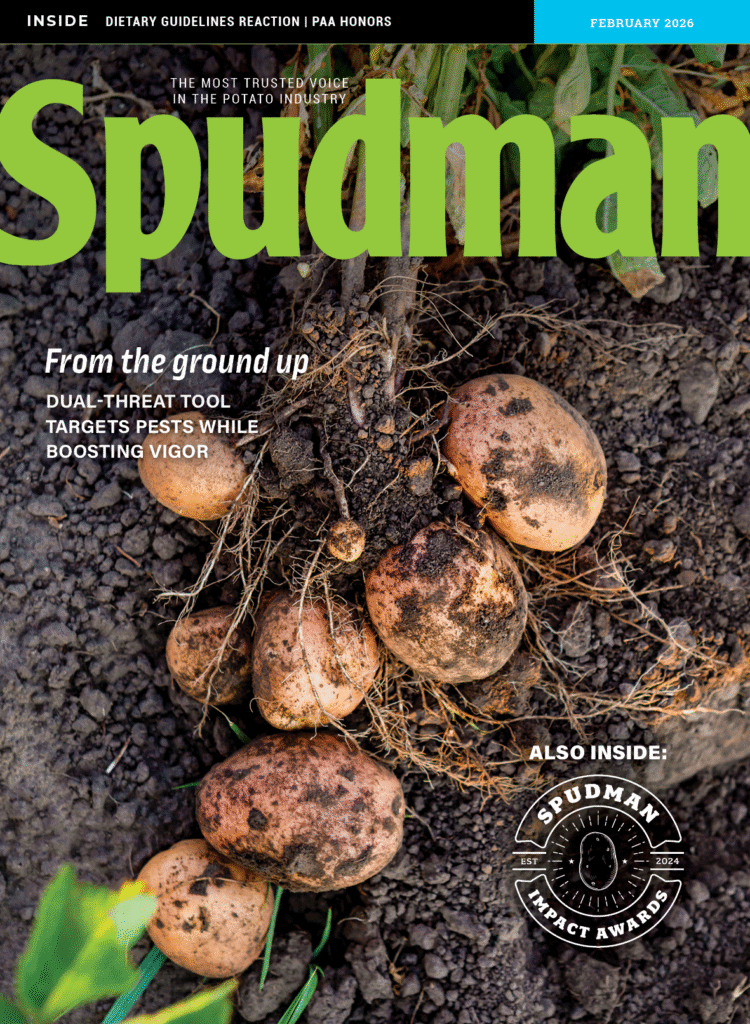Jun 12, 2025Potatoes return to list of produce testing positive for pesticide residue
Potatoes have returned to an environmental group’s list of fruits and vegetables testing positive for potentially harmful pesticide residue.
Health advocacy organization Environmental Working Group (EWG) has produced the annual Dirty Dozen since 2004 as part of its Shopper’s Guide to Pesticides in Produce.
Spinach topped this year’s list, with the most pesticide residue by weight of tested produce. It was followed by strawberries, kale (along with mustard greens and collards), grapes, peaches, cherries, nectarines, pears, apples, blackberries, blueberries and potatoes.
The list does not aim to discourage consumption of fruit and vegetables but to provide information for consumers to decide whether to buy organic products, Alexis Temkin, EWG vice president of science, told CNN.
“The guide is there to help consumers eat a lot of fruits and vegetables while trying to reduce pesticide exposure,” Temkin told CNN. “One of the things that a lot of peer-reviewed studies have shown over and over again (is) that when people switch to an organic diet from a conventional diet, you can really see measurable levels in the reduction of pesticide levels in the urine.”
The Alliance for Food and Farming, which represents both organic and conventional produce farmers, is a long-time critic of the list.
“We strongly support consumer choice when shopping for fruits and vegetables. But this choice should not be influenced by this list,” Teresa Thorne, alliance’s executive director, said in an email to CNN.
Blackberries, never before tested by the USDA, were list newcomers.
CIPC as culprit
The EWG said potatoes made this year’s list because of high concentrations of sprout inhibitor chlorpropham (CIPC). Banned in the EU because of toxicity concerns since 2020, CIPC is in the EPA’s Toxicity Category III (the second-lowest of four categories). Agency studies have found CIPC, a mild eye and skin irritant, to be of low acute toxicity.
The U.S. potato industry, while still relying on CIPC, is exploring alternatives.
 “It’s applied after harvest to essentially prevent potatoes from sprouting while they’re in storage or in transit,” Temkin told CNN. “Because it’s applied so late after harvest and so close to when consumers might be exposed or eating potatoes, that’s partially what leads to some of these really high concentrations.”
“It’s applied after harvest to essentially prevent potatoes from sprouting while they’re in storage or in transit,” Temkin told CNN. “Because it’s applied so late after harvest and so close to when consumers might be exposed or eating potatoes, that’s partially what leads to some of these really high concentrations.”
More than 50 different pesticides were detected on each of several crops on the Dirty Dozen list, with more than 90% of samples of a dozen fruits and vegetables testing positive for residues, according to EWG.
The Clean Fifteen
The organization also creates the Clean Fifteen, ranking conventional produce with the least amount of pesticide residue.
Pineapple was the least-contaminated produce tested, followed by sweet corn (fresh and frozen), avocados, papaya, onions, frozen sweet peas, asparagus, cabbage, watermelon, cauliflower, bananas, mangos, carrots, mushrooms and kiwi.
All produce — conventional or organic — should be washed before peeling or eating, according to U.S. Food and Drug Administration recommendations. Firm produce such as potatoes, carrots, cucumbers and melons can be scrubbed with a vegetable brush under running water.
The EWG lists are available for download at https://www.ewg.org/foodnews/ by providing an email address.















